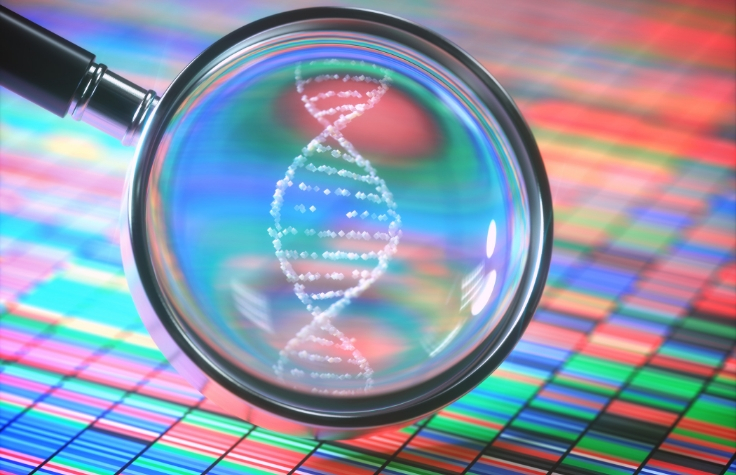DNA Changes and Your Health
Types of DNA Changes
Your genome sequence is different from everyone else's, unless you have an identical twin. These differences, or variants, arise from changes, or mutations, in the DNA. Most of the variants in your genome are inherited, though a small number of new ones arise in each generation. Some DNA changes affect the specific instructions in a gene.
There are multiple types of DNA changes, including:
- The substitution of one single DNA base letter with another (substitution)
- The addition or removal of one or more DNA base letters (insertion/deletion)
- The inversion of two or more DNA base letters (inversion)
- The duplication of one or more DNA base letters (duplication)
- The movement of one or more DNA bases from one location to another in the genome (translocation)
When a particular substitution change occurs in more than 1% of the population, it is considered a common variant. These are also referred to as single nucleotide polymorphisms (SNPs).
There are also sections of DNA bases in our genomes that are commonly copied many times over. The number of copies may vary from person to person. These changes are called copy number variations (CNVs). Again, these may, or may not, be important.
Genetic Risk for Common, Complex Disease
Researchers are searching for clues about genetic contributions to common diseases such as heart disease, type II diabetes, cancers, glaucoma, and arthritis. Unlike inherited genetic disorders, the cause of these common diseases is quite complex. Often they require multiple combinations of DNA changes along with lifestyle and environmental exposures to cause the health condition. In addition, the exact combination of risk factors (genetic, environmental, and lifestyle) required to actually develop the disease will vary for each individual.
To learn more about the genetic risk factors involved, studies may compare the DNA of people with and without the particular health condition.
DNA is analyzed to identify specific DNA changes or patterns of DNA variation that are more common in people who have the condition, but not seen in people without the condition. In this type of research, the pattern of DNA variation is usually just a link to the health condition and not the actual cause of the disease. This genetic-disease link may be described as a chance, or genetic risk, for the disease.
Although you cannot change your genetic risk factors, it may be possible to change your lifestyle and environmental risk factors. Individuals with increased genetic risks should talk with their doctor to develop preventive health plans, including healthy lifestyle choices and regular health check-ups.
Featured Stories

Knowledge is Power: Unlocking the Potential of the Genome
New survey finds Americans unaware of DNA's power to improve lives
Read Article
A Snapshot Into the Past
The mysteries hidden within ancient DNA may harness the answers to today’s mental health epidemic
Read Article
Progress for Patients with Rare and Undiagnosed Genetic Diseases
Evidence Street® issues review supporting whole-genome sequencing
Read ArticleWhat is a Genetic Drug Response?
Everybody responds to prescription medications or drugs differently, including whether you experience side effects or even whether a drug will effectively treat your health condition. Some of these differences are due to underlying DNA changes in a few key genes responsible for how the body breaks down (metabolizes) drugs. These genetic changes are referred to as pharmacogenetic changes. Pharmacogenetic changes may affect how well a particular drug works (called efficacy) and/or whether the patient is at risk to experience side effects. In some cases, specific pharmacogenetic changes can lead to very serious, potentially life-threatening side effects.
Currently, there are a small number of drugs for which the U.S. Food and Drug Administration (FDA) recommends that doctors order a pharmacogenetic test before prescribing it for a patient. Ongoing research suggests that several other drugs may also be affected by pharmacogenetic changes. As we learn more about the relationships between DNA changes and drug response, doctors will be able to use pharmacogenetic information to help choose the safest, most effective drugs for each of us.
Interested in receiving newsletters, case studies, and information on new applications? Enter your email address.
More Genetic Analysis Education
Browse educational information about genetic analysis and the areas where Illumina tools and services are used.
Learn MoreComplex Disease Genomics
Complex diseases affect us all. Illumina is committed to advancing our understanding of autoimmune and rheumatic diseases, atherosclerosis and many forms of heart disease, neurological disorders, psychiatric disorders, and much much more. With this knowledge, we can better understand how to diagnose and treat the diseases that effect so many of us.
Learn More